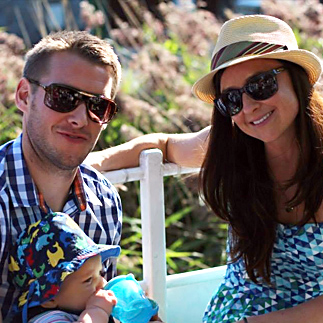Nightmares
Nightmares usually occur in the latter part of the night when your child is in a light sleep. Your child will wake up after having a dream that scared her. She will cry and look for you to comfort her. Your child may be afraid to return to sleep.
Treatment – It is important to be empathetic to children when they have experienced nightmares. If a child believes there is a monster, witch, spider etc. in the room you should acknowledge her fear. Search the room with her and show her whatever it is they she was scared of is gone. Otherwise your child will believe you don’t believe her and this can add to her anxiety as your child really believes there is something in the room. It is a good idea to have some magic potion or repellent in a spray bottle (water with glitter) that can be sprayed in the room so your child will believe whatever scared her has gone. If it is a different issues talk to your child about the night-mare and explain it was a dream etc. Always be re-assuring and patient.
In helping prevent nightmares, monitor what your child is watching on television or reading these can have a direct impact on her dreams. Have a night-light in the child’s room as a dark room can be very scary to a child. Leave the door open slightly so your child does not feel excluded from the rest of the house.
Night Terrors/Sleep Terrors
Night Terrors or Sleep Terrors are most common in children between the ages of 2 and 4 although they can happen at any age. They happen generally in the early part of the night usually within 2/3 hours of going to sleep when the child is transitioning from a Non REM sleep (deep sleep) into a REM sleep (light sleep). Night Terrors are much more dramatic than a nightmare, a child can scream, run around, throw objects, become violent towards themselves and others around them, the child’s eyes will be open and will appear to be awake. A child may breath faster, their heart-rate can rise and they may also sweat. Night terrors are a nightmare for parents, although they have no mental side effects on the child.
Treatment – When a child is experiencing a night terror there is very little you can do. Your child is still in a deep sleep so no matter what you try to do it won’t register with your child, he will not recognise you or your voice. All you can do is try to keep your child safe. It would be advisable not to try and wake your child while he is experiencing a night terror as if he does wake your child will only be confused as he will not remember what happened and will not know how he came into the situation that he is in. A night terror can last anything generally from a few minutes to an hour (extreme cases). When a child is coming out of a terror they simply just calm down and fall back to sleep. Your childs heart beat will rise and he may even sweat. A child that has suffered a night terror will not remember this in the morning. It would be advisable not to question the child in the morning about the night terror as it may make him anxious when he goes to bed.
To help prevent a night terror you should be careful about what he watches on television. If your child has had a stressful or an emotional day he may also be more prone to experiencing a terror that night. Always ensure your child has a regular bedtime and is not overtired going to bed. Also try putting your child on the toilet when you go to bed as a full bladder can also trigger night terrors.
If your child generally wakes at the same time during the night you could try to gently wake your child just before the terror usually begins to occur. Wake your child just enough so he open’s his eyes and acknowledges you are there. This should break his sleep cycle and prevent the terror from occurring.




